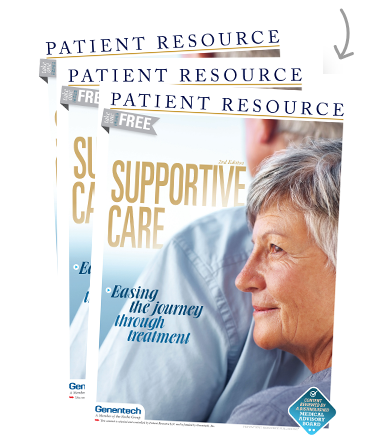Constipation
Constipation occurs when your stool becomes hard, dry and difficult to pass, and bowel movements occur less frequently than normal. Other symptoms may include painful bowel movements, and feeling bloated, uncomfortable and sluggish.
What causes constipation?
Cancer drugs can affect your bowel cycle because they disrupt nerve signals to your abdomen. Pain-relieving medications can also reduce your bowel activity. Constipation may also be caused by lifestyle changes, especially if you are less active during treatment. A change in your diet can also affect your bowels, especially if you are drinking fewer fluids and eating less fiber. Many other imbalances within your body during treatment can affect your ability to pass stools.
When does constipation typically occur?
Constipation can happen at any time during treatment and depends greatly on its origin. If the constipation is related to your drug therapy, it is typically worse during treatment and will lessen in the weeks following your last dose. If it is related to diet or lifestyle, it will likely improve as you change your diet or practices to promote healthier stools.
How you can manage constipation
The best way to manage constipation is to prevent it. Talk to your health care provider about preventive medications, dietary changes or lifestyle changes. In addition, drink more liquids, eat more fiber or take fiber supplements, and be more active.
When to call your health care provider
Let your health care team know if you experience constipation for more than a day. They may want to monitor your symptoms.



